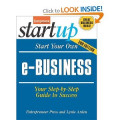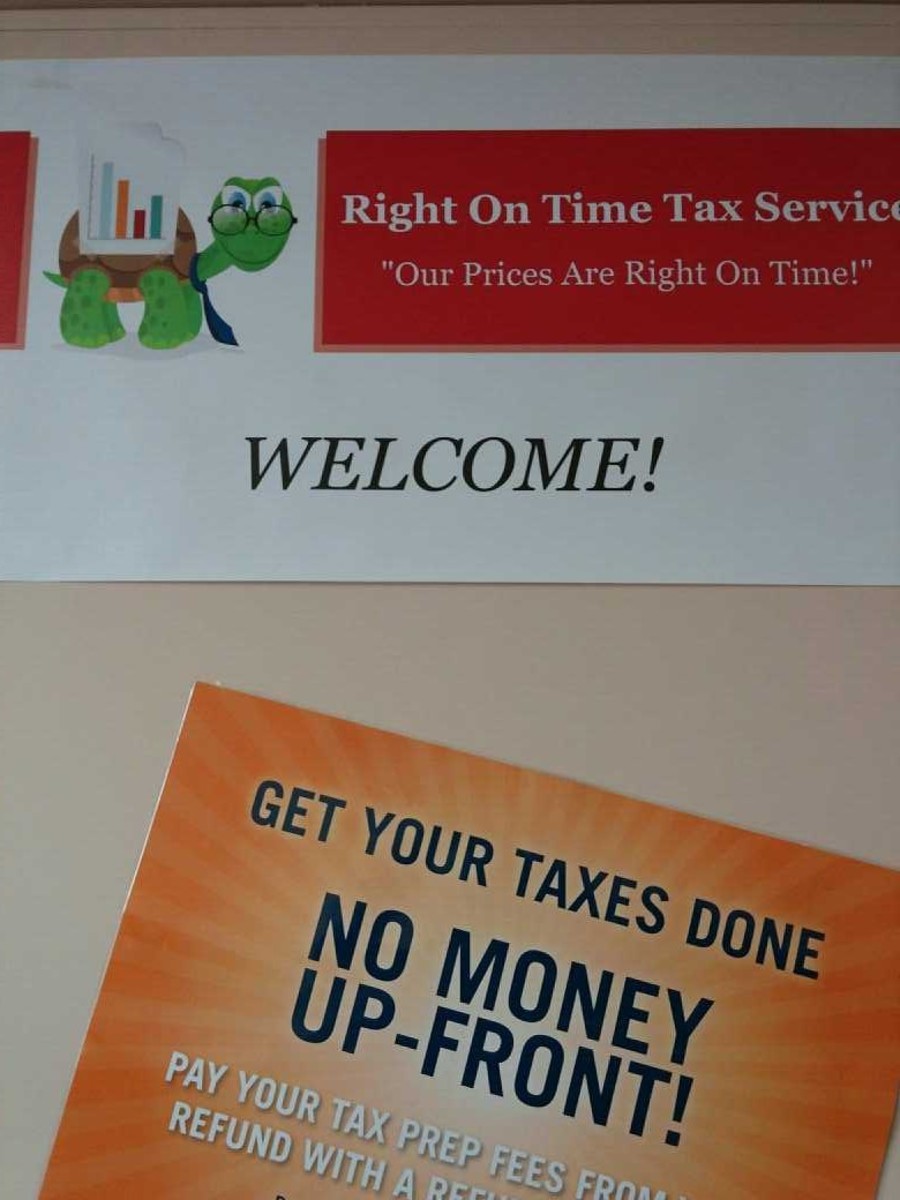Is It Time to Start Your Own Business? Two Case Studies.
“Champions aren’t made in gyms. Champions are made from something they have deep inside them—a desire, a dream, and a vision.They have to have the skill and the will. But the will must be stronger than the skill.” Muhammad Ali

Full-Time Job, or Business Ownership?
My first case study is based on discussions I had with someone I once knew. A young man, Roberto (not his real name), was a graduate student who had to make a major decision about whether or not it was time for him to start his own business. Roberto was working on an MBA, and I met him when he took marketing management course I was teaching on Saturdays at a local university in Houston, Texas.
A working professional, Roberto had a full-time job and a family (a wife and two young children), and his dream had always been to start his own business. Around mid-semester, after I'd gotten to know him and my other students well, Roberto came to see me after class. He asked if he could make an appointment to talk to about a business-related "challenge" he had. Even though I was not required to hold formal office hours at the university since I was teaching part-time, I still had access to a faculty office. So, I set up a time for Roberto to come by for a visit the next Saturday morning, before class.
An Employee's Decision to Make
Roberto told me that several years before taking my class, he’d started feeling he was ready to strike out on his own, but had been reluctant because his wife wanted him to use his MBA to get a better, higher-paying job. He was completing the final semester of his MBA and felt it was time for him to make up his mind about his plans for the future. Would he begin seeking a better job, or should he put his time and energy into planning to start a business? He said he couldn't ignore the fact that his wife didn’t feel it was the right time for him to strike out on his own. She felt there would be plenty of time in the future for them to pursue business ownership, and was mostly against the idea, but said she would support him if he decided he had to take the plunge.

At age 33, even though he had an undergraduate degree in business and had grown up working beside his father who owned a successful restaurant, Roberto had never actually run a business. He had no idea if he would like it, or if he’d be successful at it. He had held jobs in different aspects of business for 10 years since obtaining his undergraduate degree, and had gained a lot of knowledge that could help him become a business owner. Still, with work and family responsibilities, he said he was always too busy to take the time to figure out how to use his business knowledge and experience to start and manage a business of his own. He felt as though there would never be a right time, and that if he didn't just "dive in," he might never do it.

Like anyone seriously considering whether or not to pursue business ownership, instead of continuing to work for an employer, Roberto was faced with a major decision. When he asked for my advice, I told him he was his own best source of advice. After all, he had all the knowledge he needed about his ambitions, his marriage, his career, and his family life. As his professor, I could only listen to his story and offer a few comments, but I told him he needed to listen to his inner voice more than to me or anyone else. I encouraged him to use what he discovered as he listened to his mind and his heart, and to use his innermost thoughts as resources to help guide him throughout the decision-making process.
I knew that listening closely to his inner thoughts so that he could hear from his heart and his mind, could help Roberto walk himself through the pros and cons of business ownership. I suggested that he keep a journal and write down his thoughts as he decided what his options were. I reminded him to allow his inner thoughts—what he was saying to himself through his inner voice—to help him confirm his beliefs, feelings, expectations, and emotions as he researched and explored the many choices involved in making any life-altering decision. I also urged him to compare financial and other costs of starting a business with the idea of pursuing a higher-level position in his field, either with his present employer, or with another company.

Keeping a Decision-Making Journal
I advised Roberto to:
- Allow his inner thoughts, what he was truly thinking, to be part of the decision-making process as he weighed competing alternatives.
- Play the role of “devil’s advocate” in his thoughts as he considered the advantages and disadvantages of business ownership. For every plus, come up with a minus. Don't simply look at what would be the "good points." Look at the down side too.
- Push back from the situation to find objectivity. Look at things as though the scenario was someone else's life. What would you say to a friend in the same situation you are facing?
I knew that keeping a journal could help Roberto be as objective as possible while trying to discover whether owning a business was the right choice for him to pursue after graduate school. I also knew it could help him find out if what he really desired was simply a path to earning more money.
On the other hand, if what Roberto really needed was to be his own boss, to make his own decisions, and have a greater degree of independence in his work, then I knew he would come to the conclusion that he would not be satisfied with a higher-level position with his current employer, or with finding a better-paying job at another company.
For several weeks after class, Roberto and I would chat a few minutes about where he was in his decision-making process. Listening to him, it seemed obvious to me that he was learning how to provide himself with positive counsel as he moved closer and closer to his decision. He was learning to focus his mind on the problem he was facing, and doing that was helping him to have more confidence and courage throughout his decision-making process.

Roberto used a process that allowed him to travel, in his mind, down the road he'd have to take to start a business. Journaling forced him to come face-to-face with important considerations about time and money, and how he'd need to have plenty of both in order to start a business. If business ownership was to be his choice, he knew he would have to begin looking for the money and the time he would need to pursue his dream.
By keeping a journal of his self-talk, Roberto was able to dig deep in his thinking, to find out if he was actually ready to devote quality time to starting a business. He wrote down hundreds of questions, and then he searched his mind and his heart for answers. He looked at the pros and cons of keeping his job and his income while starting a business. He knew that if he kept his job while starting a business, his biggest challenge was going to be finding the time he'd need to devote to starting the business. Evenings? Weekends? Since he had family and other social obligations, he wrote about how keeping his job and starting a business would require him to give up time with his family. He wrote about all that he would have to sacrifice, and miss out on, if he was going to give to his dream the kind of time starting a business would require.

The Decision-Making Outcome
Nearly six months after Roberto graduated, on a Saturday morning, I'd just finished teaching a class. As I was leaving, I saw a well-dressed man sitting in the break area outside my classroom. As soon as he saw me, he stood up. I almost did not recognize Roberto standing so tall, all dressed up in a nice business suit, necktie and all. He said he'd come straight from a weekend business presentation downtown, but decided to stop by to see if I was there. After he reminded me about the dilemma he'd faced months ago, he thanked me for helping him make what he called the toughest decision he'd had to make, so far, in his career. He looked down for a brief moment, smiling. When he looked back up, he said starting a business was something he had always wanted to do, and that he'd only started working on his MBA to prepare himself for starting a business.
Keeping that journal of his inner thoughts, he said, had really helped him take a good and honest look at his alternatives as well as at the challenges he would face while starting a business. He said his journal helped him keep a positive mindset throughout the decision-making process, because it allowed him to be as objective about his situation as possible. It helped him feel, he said, as though he had his own support and strength throughout the process of making his decision.
Finally, Roberto said that although it had been exciting to think about being his own boss, and that even though he was intrigued with the idea of creating something of his own, after he examined every consideration in depth, he discovered that what he was really feeling at the time was great dissatisfaction with the job and the career path he had. Listening to his inner voice while keeping a "self-talk" journal, he said, had helped him realize that what he really wanted was a different career path that offered him the promise of more hope for the future.
Bottom Line: Decision-Making Success
After completing his MBA, Roberto felt energized from knowing what path he wanted his career to take. After he'd applied to several companies and engaged in lots of professional networking, a good friend helped him land a new job. He applied for, and was hired, to be as an assistant vice president of marketing for a young but successful and growing firm. It was a position several levels above the one he'd held before, and in one career move, his income had nearly doubled from what he was making at his old job. Roberto seemed very happy with the decision he'd made.
He told me he still dreams of one day starting his own business, and that he still intends to take that plunge one day. He said he didn't want to go through life not having pursued his dream, but that postponing it had allowed him to find a job that he loved. He said he was now earning an income that enabled him to take care of his family, to enjoy life and not have to worry as much about money, and to save too, so that he could one day invest in starting his own business.
By learning to listen to his inner voice, Roberto was able to give himself the time he needed to think things over, and to not pressure himself for a quick decision. Even though he did not have all the answers he needed in the beginning, by focusing his thoughts and allowing his internal dialogue to help him, he became a supportive friend to himself as he did the work he needed to do to discover a better path for his professional life.

Case Study No. Two . . . Alison's Career Dilemma
The star of this case study is Alison (not her name), a former co-worker at a company where I once worked. Alison worked as an office manager, but was also a graphic artist studying for a graduate degree in commercial and advertising art at a local university. Her undergraduate degree was also in art and graphic design, and she was facing a challenge that had many similarities to the one Roberto had faced. Like Roberto, Alison was married, and her husband worked a blue-collar job as a driver for a next-day service package delivery company. The couple had three children, and planned to have at least one more.
Unlike Roberto, Alison knew what it was like to run a business. She had done freelance graphic design work, part-time, for over a decade. Then, one year into working on her master’s degree, she was offered a full-time position with a big company as a graphic designer. She left the company where I worked and went to work for the big corporation, but she and I stayed in touch. She told me her new job was very demanding, and since she worked full-time, it was now going to take a little longer for her to complete her graduate degree. Her new job often required her to work well over 50 hours a week, and her position was salaried. That meant there was no overtime pay for the extra hours she often had to put in.
One day she called and said she wanted to meet for lunch, to talk about something important. During lunch, she told me she was trying to decide whether or not it was time for her to leave her job, to start her own business. After thinking over what she was asking my advice about, I gave her the same advice I'd given to Roberto back when I'd been teaching part-time. I suggested that it might be of enormous benefit to listen to her inner voice, to do some soul-searching, and to give herself the time she needed to think things over. I told her not to pressure herself for a quick decision.

Choosing Between a Steady Paycheck and Business Ownership
Unlike Roberto, Alison had worked independently as a freelance graphic designer for many years. Because she'd worked with clients as a freelancer, she knew a lot about the joy and the challenges of being an independent business owner. She knew how hard it could be to get and to keep clients, and, because she'd also worked as an employee, she knew how comforting it could be to have a steady job, and to receive a steady paycheck.
After she started keeping a self-talk journal, Alison said she was able to see that she was never going to be fully satisfied in her career until she was her own boss. She said she craved the freedom of managing her own time by setting her own work hours, and loved being able to spend as much time as she could with her husband and children. While she enjoyed the security of a steady paycheck, she said she also liked the idea of not having limits placed on how much she could earn, or on the type of work she could do. Being a business owner would give her the freedom and independence she felt she needed. That, she began to realize, meant a lot more to her than a steady paycheck.

Another Journal, A Different Outcome
After weeks of keeping a journal and listening to her inner voice, Alison knew what path she wanted to take. A year later, she'd completed her master’s degree and turned a garage apartment she and her husband owned into a graphic design studio.
Shortly after completing her graduate degree, Alison opened and began operating her own graphic design firm from her garage apartment. She kept her full-time job for a while, but as soon as she was sure she could help her husband meet all of their financial obligations, she left her job for good. Working at home allows her all the time she wants/needs to spend time with her children and her husband. The last time I spoke with her, Alison still seemed very pleased with her decision.
Her design firm, which is still small, is now among the more successful firms of its size in the suburban city where she lives.

Another Decision Maker, A Different Decision
Alison's decision to start her own business after graduate school was the exact opposite of the decision Roberto made. But, both Roberto and Alison were very happy with their decisions.
The point I am making is that everyone is different, and that what works for one person may or may not work for someone else. Still, learning to listen to your inner voice as you consider the options and alternatives that fit your life, is something anyone can do. Keeping a journal can:
- Help you "think your way" to a good decision. It is a resource that is always there to help you.
- Provide a visual, something you can refer to as you take an honest inventory of what you think you want. It can help you zero in on how you truly feel by providing a tangible way to organize thoughts.
- Help you begin tackling any big decision by breaking it down into its component parts, allowing you to dissect the parts further into manageable items of information that are a lot less frightening.
- Help you turn lists of questions into options, alternative answers, responses, and/or small steps you'll need to take along the way to making your final decision.
Once Roberto and Alison began keeping journals, each was able to scrutinize every alternative, until only one path stood out as the logical one to take. Instead of looking at a giant decision that had to be made, they were able to break their choices down into tiny pieces of information that helped make decision-making easier, because it became easier to visualize a clear path, the best path, for each of them to take.
Your inner “little voice” is always there, and if you learn how to listen to it, it can help you discover and validate your true thoughts, feelings and emotions as you examine your options when making any major decision. It will help you stay grounded in the reality of your current situation as you imagine possibilities, and while considering your skills, your financial circumstances, and your desire to make important changes in your life.
© 2012 Sallie B Middlebrook PhD








